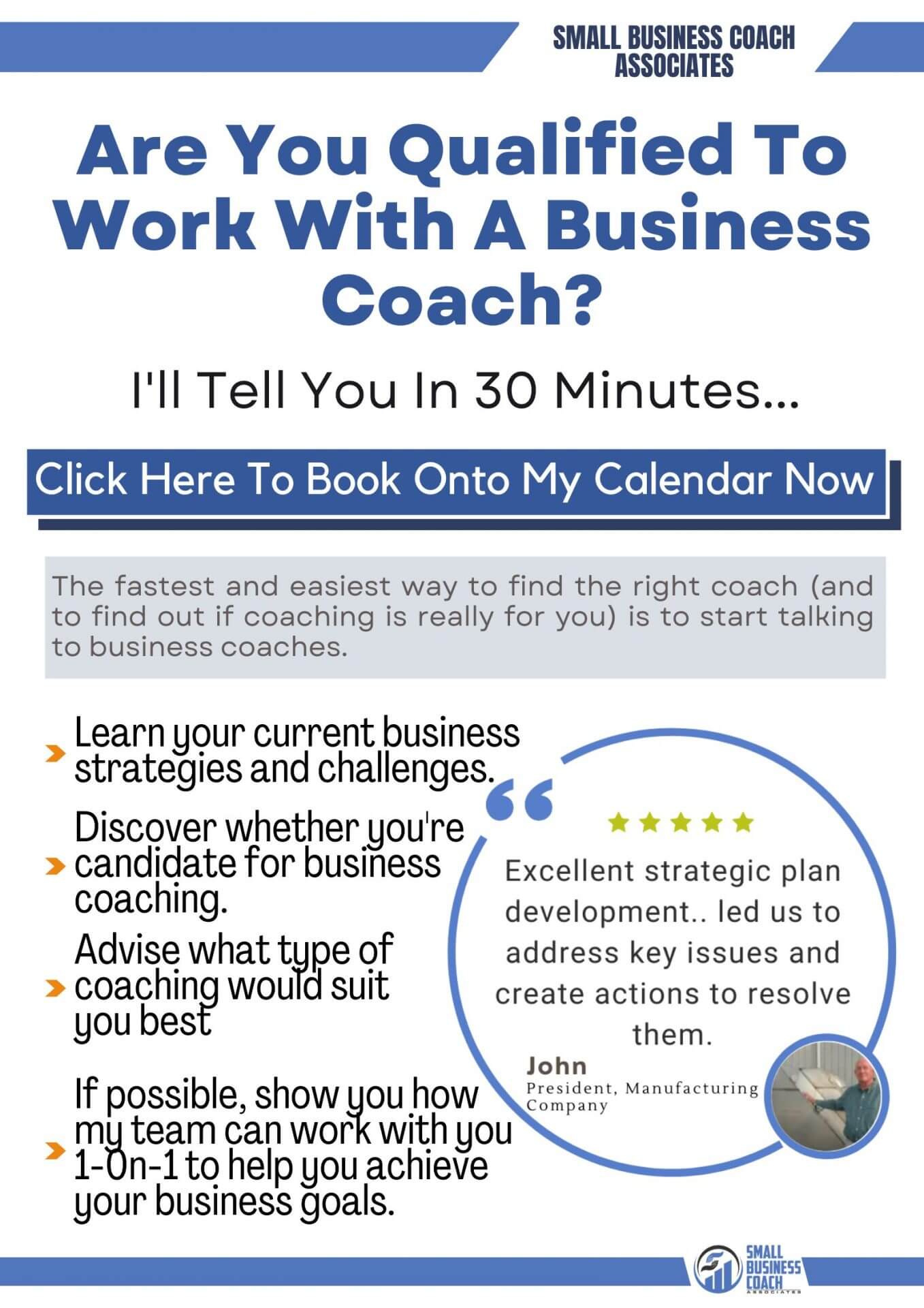VIEW BY TOPIC
- Finding Customers
- Business Systems
- Managing Employees
- Leadership
- Managing Money
Related Posts

Ready to Grow Your Business Fast?
Here’s How I Grew Five Businesses, and Eventually Sold One to a Fortune 500 Company.

What is the Best Exit Strategy to Sell Your Business?
Best Exit Strategy for Your Business
A best business practice for any owner is to create an exit strategy – a plan for the time that you will want to step back from full ownership of your business.
Creating an exit strategy can be done in the early days of your business, or near the end. To gain the optimum outcome when selling your business, it would be ideal to start this plan from the beginning. The foundation is laid before unexpected events occur like a life-changing illness, an economic downturn, or a market change. If you haven’t started the now is the time to begin!
First
-
What is the overall state of your business?
Assess the matters that will indicate the general health of your business and, thus, (a) determine if it’s the right time to exit your business, and (b) if it’s in the best shape for a sale. Rate these items as follows: Very healthy (VH), healthy (H), somewhat unhealthy (SU), or very unhealthy (VU)?
- Good cash flow. As an owner, you have ready access to the cash (or loans) you need to make updates and improvements prior to sale. Knows monthly costs of doing business, such as payroll, taxes, insurance, etc. (VH, H , SU, VU)
- Customer base. Has a good base of regular, repeat customers. Your number of clients continues to grow, or has remained flat for a significant period. (VH, H , SU, VU)
- Organization. Has a full balance and accounting of equipment, machinery, vehicles, inventory, computers, software, and other assets. Executes periodic check-ups to determine business health. (VH, H , SU, VU)
- Management. Procedures or processes that standardize repeatable operational functions. Existing job descriptions, templates, and handbooks. Current and organized financial documents. (VH, H , SU, VU)
- Selling points. Identify those other characteristics or conditions that make your business enticing to takeover or buyers? For example: product quality, location, well-trained staff. (VH, H , SU, VU)
- Weaknesses and gaps. Honestly appraise where improvements can be made. (VH, H , SU, VU)
When you identify “unhealthy” aspects to your business, take the steps to make the changes (over time) that will improve not only your business’ value but also its daily operations, which typically results in more income/lower costs.
Second
-
How to sell or turn over your business?
-
Business Legacy
Hand it down to family member.
-
Business Buyout
Sell to your existing partner, management, or staff.
-
Business Merger
Sell to or merge with a competitor. Could be an easy and attractive way to turn your business, inventory, equipment, and client base over to someone in the same industry. May involve owner staying on as a consultant, but without the power or control over decisions you don’t like.
-
Initial public offering
Sell shares of stock of your privately owned business to the general public. This approach is seldom used. The expense may outweigh the cash benefits.
-
Sell to a Third Party
Market and sell your business to a third party. With the right buyer this can work quite well.
-
-
Business Liquidation
Most business owners don’t take this path, but it should be an option about which you’re educated. If significant market changes make your business obsolete or much less valuable, you can at least liquidate your holdings such as machinery, inventory, vehicles, client list, and buildings.
-
-
Sell, but remain involved in the business as a part owner, consultant or board member.
-
This can be a good move when you have accepted an “earn out” (payments after the sale based on performance). This allows you to keep a handle on the business while you are collecting your payments.
-
-
Sell to a Strategic Buyer
-
A strategic buyer is another company in your industry that may or may not be a direct competitor. They understand your business, will usually pay top dollar and can quickly take over and run your business after the sale.
Third
-
How to value your business?
- Find a reputable consultant to get an appraisal.
- Use your accounting of physical, material, and non-material assets.
(Non-material in this context includes assets like trained staff, existing customer base, and regular status/assessments.)
Fourth
-
What assistance might be used to develop or execute your exit strategy?
In all cases, be sure to check references, credentials, and background of a consultant before you engage them. To maintain confidentiality of any plans you have for selling, employ non-disclosure agreements.
-
Business broker
To assist with business valuation as well as structuring and marketing the sale. Get information upfront about their approach, fees, and professional connections that can assist in in a smooth job. How will they find a qualified, reputable, and financially stable buyer?
-
Certified public accountant
To maintain organized financial documents and bookkeeping, such as tax returns, balance sheets, and profit & loss statements.
-
Small business coach
To help you with the development and planning involved in designing, structuring, and executing good business management which leads to a successful exit strategy.
-
Documentation specialist
Operational policies and standards. Procedures. Insurance policies, contracts, certifications, and licenses. Employee confidentiality agreements. Handbooks. Training materials. User manuals (for software or hardware used or developed by company).
Summary
Plan your exit strategy over the long-term
Engage knowledgeable consultants along the way
Keep all documentation current and complete
Know what you want your exit to look like
Planning and good business management will create an ideal exit strategy to get the most satisfaction and best sales price for your company. Avoid the mistake of not starting your exit strategy until you become sick or burned out, or there’s a financial downturn.













